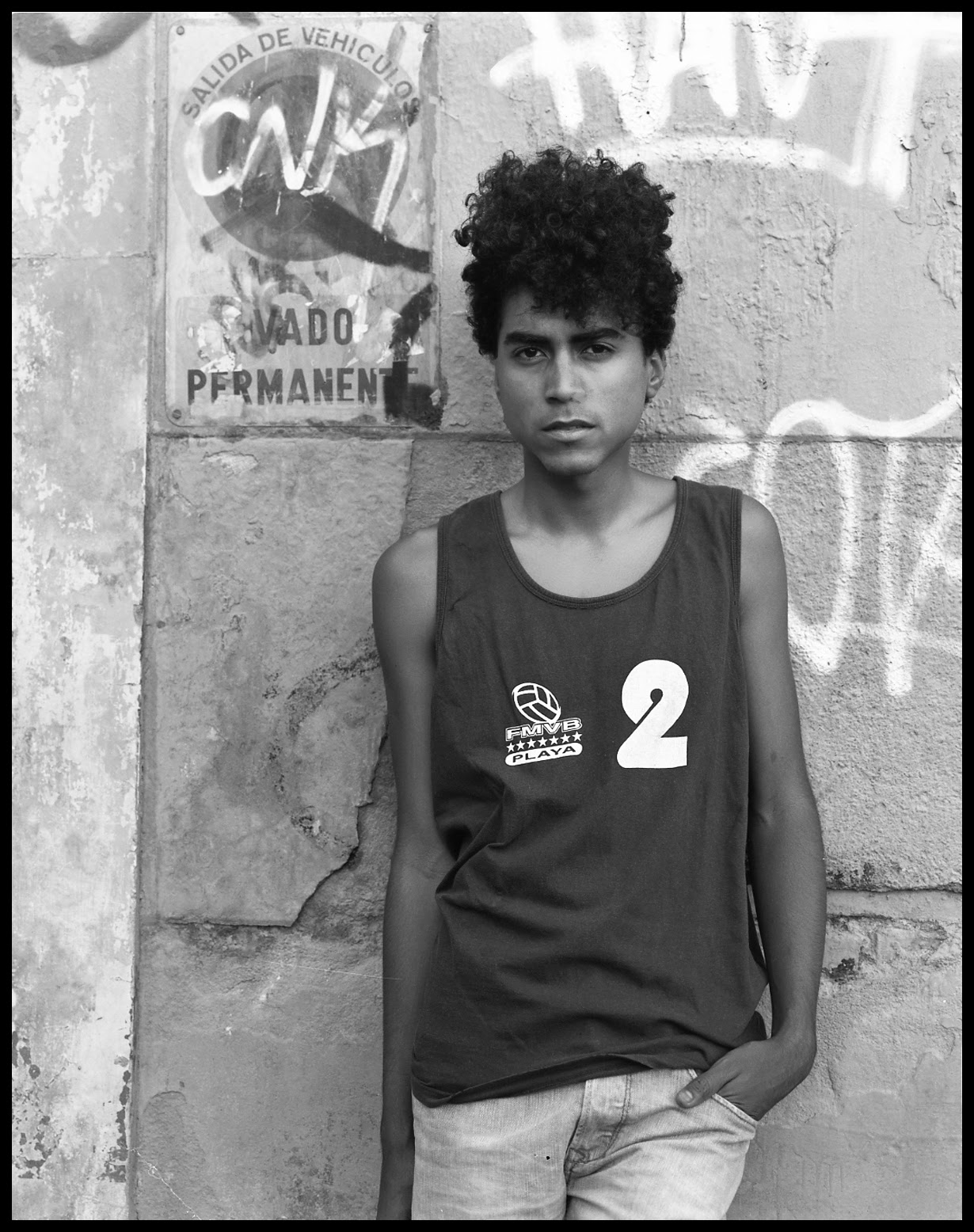When I make portraits in the street, as a general rule, I only expose two sheets of film. This is something I learned from studying the work of
Joel Meyerowitz, who once said, "I need only one or two sheets of film and the patience to see it through." This usually works for me; I am usually pleased with the results.
There are times, however, when I encounter a technical failure, and create a set of negatives that are not useable. That was the case when I photographed Nikki, a striking looking young woman whom we met one afternoon last April. Somehow the negative was significantly underexposed, rendering a print that looked like this:
No amount of manipulation improved the print, so I went to my local lab and asked them to try to "save" the negative. It resulted in a print that distorted and blew out some of the highlights:
While I really like Nikki's presence in front of the camera, the tones and the contrast simply don't work. So I decided to contact Nikki and see if we could make her image again. She graciously agreed, and two months later this was the result:
While the exposure is correct in this second iteration, and the tonal range acceptable, the portrait doesn't connect for me. For me, the subject in a portrait has to move beyond having an "interesting face"; it has to strike me on a visceral level. So the technical foul up notwithstanding, I consider the portrait of Nikki a failure.
What I learned is this: my first encounter with a person, the moment that is visceral, is the moment I want to "know" and capture on film. If that doesn't happen, a second try at a later time is not likely to produce the result I want. A second attempt won't be able to reproduce the feeling of the first. I learned to detach my disappointment and let go.





















.jpg)




.jpg)
.jpg)

.jpg)






















